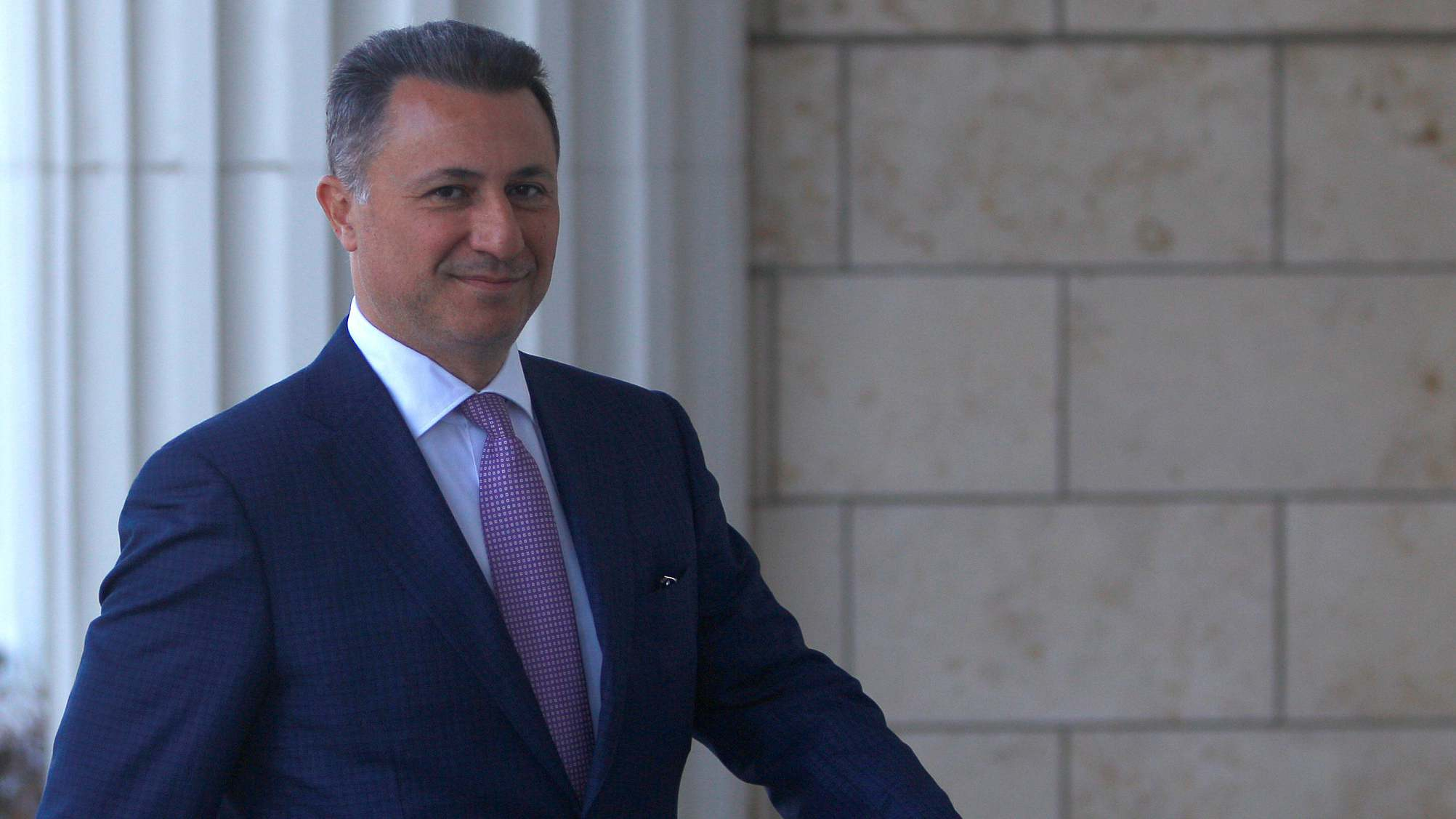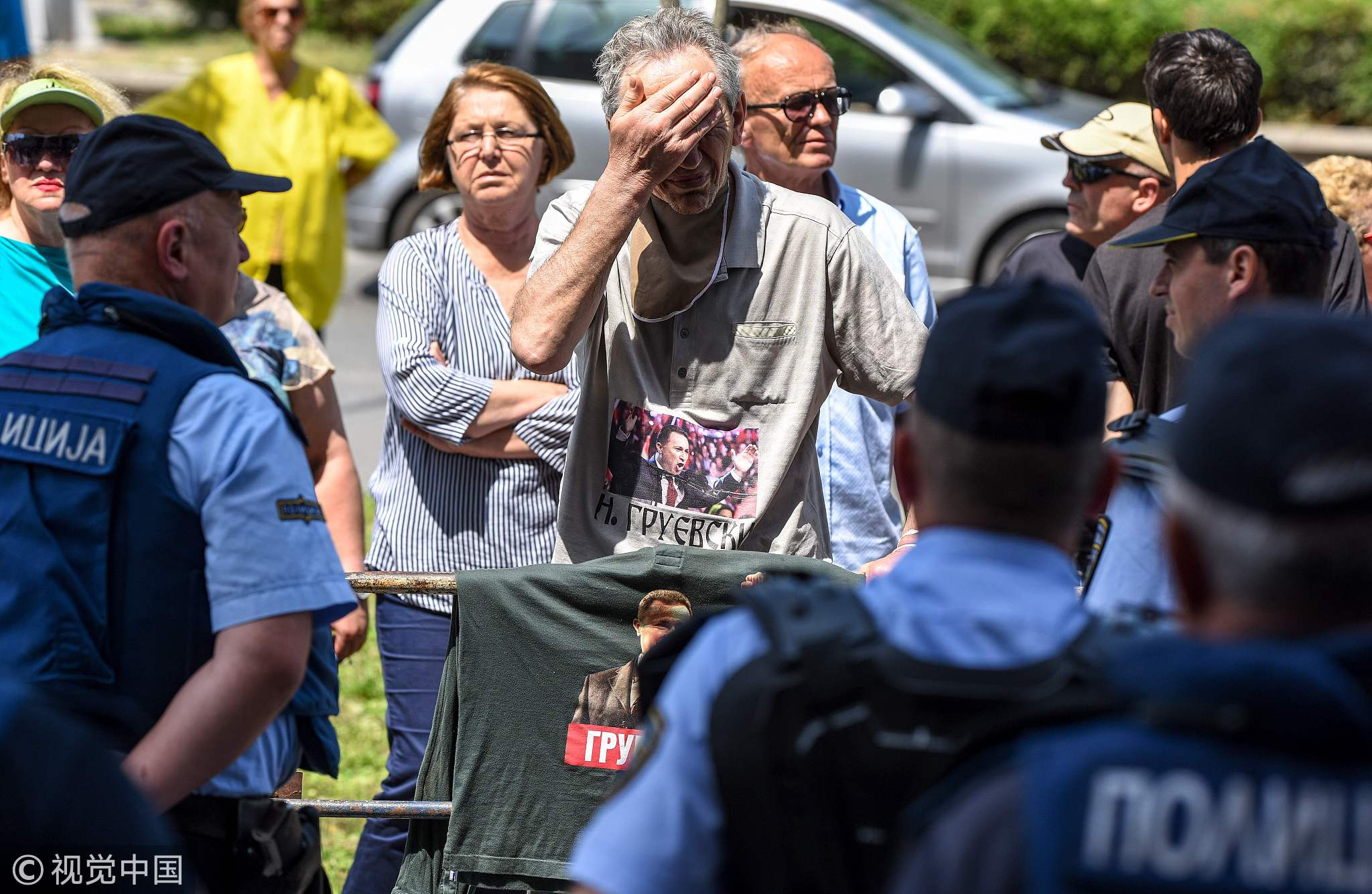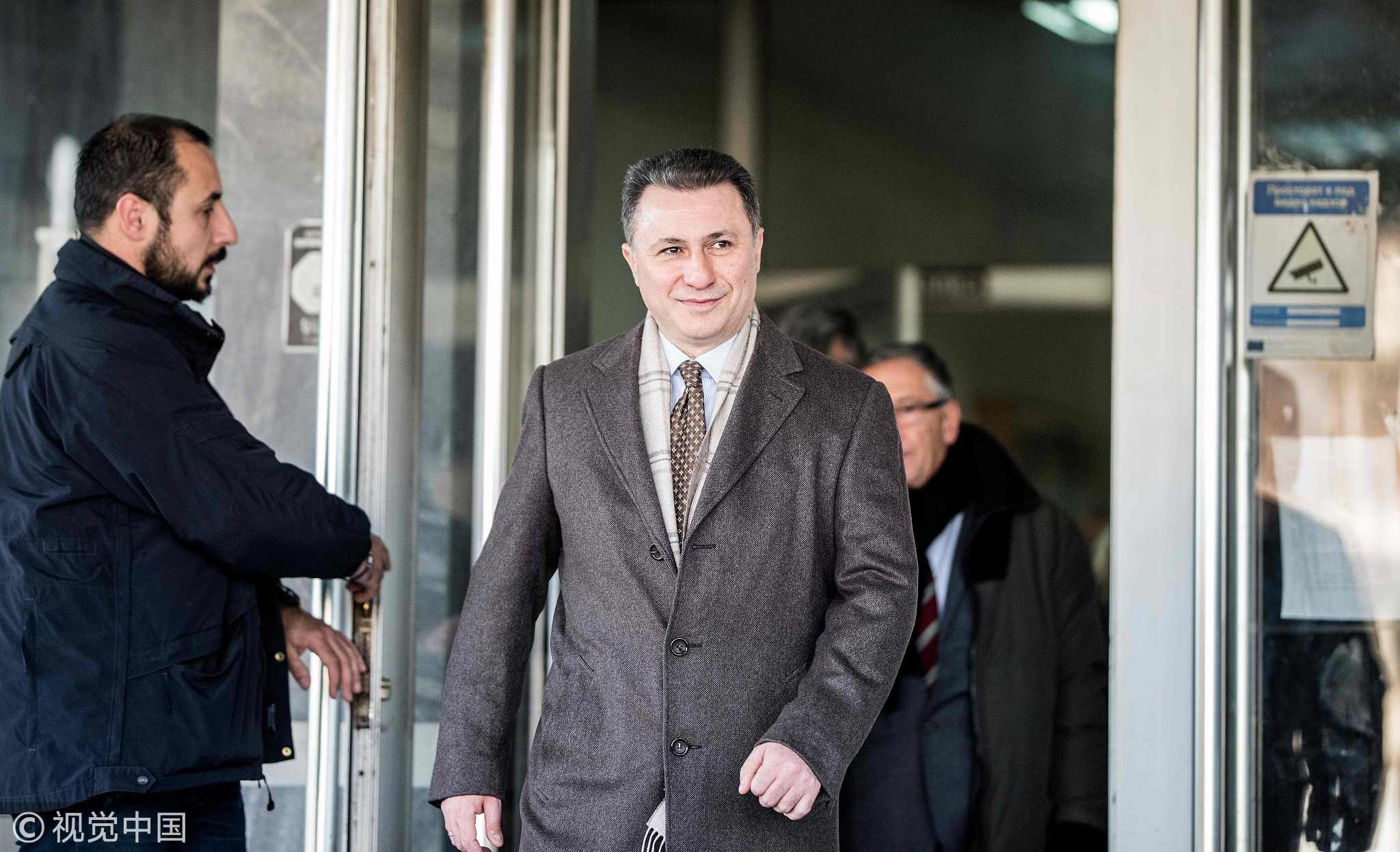
Politics
08:07, 16-Nov-2018
Macedonian ex-PM fled in Hungarian diplomatic car: Albanian police
Updated
07:15, 19-Nov-2018
CGTN

Former Macedonian prime minister Nikola Gruevski, who fled the country to avoid prison, used a Hungarian diplomatic vehicle to escape through Albania, police in Tirana said Thursday after Budapest formally denied any involvement.
Gruevski left Albania on Sunday "at 7:11 pm (18:11 GMT) using the border crossing Hani i Hotit, to enter Montenegro," a police statement said.
The former strongman, who dominated the country for nearly a decade until 2016, traveled in a car with the number plate CD 1013A, it said. Montenegrin police confirmed that Gruevski entered the country on November 11 "and left Montenegro the same day", adding that they had "fully respected legal procedures in this case."
Facing a jail term for abuse of power, Gruevski fled to Hungary, a European Union member, where he sought asylum.
Earlier Thursday, the Hungarian government formally denied having actively provided assistance in Gruevski's escape.

A man cries as he protests in front of the court in Skopje on May 23, 2018, against the sentence of former conservative prime minister Nikola Gruevski to two years in prison for unlawfully influencing officials at the interior ministry over the purchase of a luxury bulletproof car. /VCG Photo
A man cries as he protests in front of the court in Skopje on May 23, 2018, against the sentence of former conservative prime minister Nikola Gruevski to two years in prison for unlawfully influencing officials at the interior ministry over the purchase of a luxury bulletproof car. /VCG Photo
"The Hungarian state authorities had nothing to do with him leaving the territory of his own country," Prime Minister Viktor Orban's cabinet chief Gergely Gulyas told reporters.
"The Hungarian state had nothing to do with him leaving Macedonia," he added. A Hungarian government representative told AFP in the evening it did not want to comment on the information released by Albania.
In the past, Gruevski has indicated he was close to Orban. In 2017, Orban publicly supported the Macedonian ex-leader during his campaign for municipal elections, in which Gruevski's rightwing VMRO-DPMNE party lost to the ruling Social Democrats.
Both have accused US liberal billionaire George Soros of stoking illegal immigration – claims that Soros denies.
Hungary has said it would "consider the assessment of the former Macedonian prime minister's asylum request to be solely a legal issue". Orban's ruling Fidesz party said Wednesday that Gruevski was "persecuted and threatened by a left-wing government, which clearly has the support of George Soros".
Gruevski's request will test Budapest's willingness to apply harsh asylum rules and anti-migrant measures like border fences and detention camps for asylum seekers that have drawn fierce criticism from Orban's opponents at home and abroad including Brussels.

Macedonia's former prime minister and leader of opposition VMRO DPMNE Nikola Gruevski leaves the court in Skopje on December 6, 2017. Nikola Gruevski goes on trial for alleged abuse of power between 2012 and 2015. /VCG Photo
Macedonia's former prime minister and leader of opposition VMRO DPMNE Nikola Gruevski leaves the court in Skopje on December 6, 2017. Nikola Gruevski goes on trial for alleged abuse of power between 2012 and 2015. /VCG Photo
On Wednesday, Macedonian Prime Minister Zoran Zaev urged Hungary to "respect international practice, international law" and not provide "a refuge shelter for criminals." Macedonia has meanwhile issued an international arrest warrant.
"Macedonia is a strategic partner and an important ally of Hungary," the government in Budapest said in a statement.
Gruevski was convicted in May of using a 600,000-euro ($676,009) government Mercedes for personal travel. A Skopje court upheld the sentence in October. He also faces a number of other charges of corruption, abuse of power, electoral fraud as well as illegal wiretapping. Gruevski claims that the cases are politically motivated. His passport had been confiscated during the probe and Macedonian media has questioned how he managed to leave the country.
Hungarian opposition parties have warned the government against giving protection to Gruevski.
"Corrupt criminals who steal their own people are usually granted asylum only in the worst dictatorships in the East and in the banana republics and not in the EU," said the Democratic coalition party.
(Cover: Former Macedonian prime minister Nikola Gruevski enters a court in Skopje, Macedonia, October 5, 2018. /VCG Photo)
(Source: AFP)
Source(s): AFP

SITEMAP
Copyright © 2018 CGTN. Beijing ICP prepared NO.16065310-3
Copyright © 2018 CGTN. Beijing ICP prepared NO.16065310-3